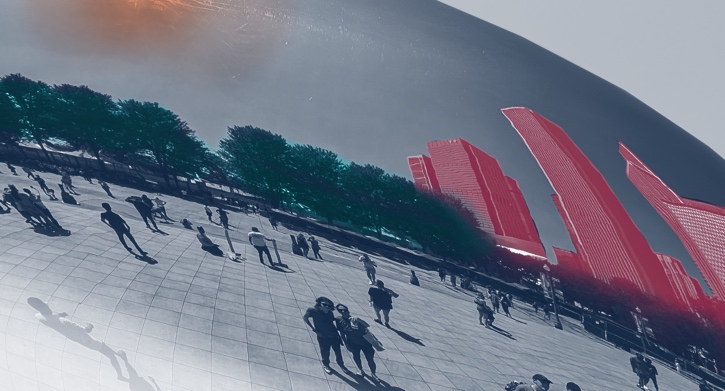Event
Recap
WORKTECH24 Chicago
Worktech Chicago 2024 Highlights AI, Real Estate, and Workplace Culture

The July 2024 iteration of Worktech, a pioneering conference that explores emerging trends in the workplace, recently took place in Chicago. Held at the headquarters of mHUB, a nonprofit innovation center devoted to physical product development, this particular version of Worktech brought thought-leaders together to share their insights on three pressing topics that deeply resonate with PLASTARC’s work:
• The role of disruptive technologies such as AI in the modern workplace
• Technological adaptations to corporate real estate that can unlock hidden value
• Holistic strategies for enhancing and uplifting company culture
After opening remarks from the organizers, Manas Mehandru, COO of mHUB, kicked off the conference by introducing the space and highlighting the ways in which a strong sense of community has inspired so many of the innovative products that have emerged from mHUB. Companies founded at the nonprofit, which prioritizes representation and collaboration, have generated $1.6 billion in revenue, $1.9 billion in investment, and over 6,000 jobs.
Emergent technologies such as AI were the morning’s primary focus. A number of speakers, including Alexandra Levit and James Waddell, parsed the role that AI should – and shouldn’t – play in the workplace. In their fireside chat, Levit and Waddell showcased some of AI’s most exciting capabilities, from writing original music to participating in extemporaneous conversations. From there, they explained the ways in which AI-driven processes are, and will continue to be, dependent on human involvement. Human oversight, they said, will be needed to prevent bias or inaccuracies in AI knowledge systems. And although certain elements of our jobs – the most mundane parts, specifically – will continue to be fulfilled by AI agents, this will enable us to focus on more creative and managerial concerns.
Stuart Bern and Connor Gray of JLL Technologies expanded on these ideas by discussing how the right combination of AI, corporate real estate (CRE) solutions, and efficient organizational design will help companies streamline and centralize their operations.
In a lively discussion about the potential applications of workplace metrics, Mary Carnes from OfficeSpace Software shared the stage with Rapid7’s Andrea Diieso and Emily Dellenbaugh. Diieso and Dellenbaugh explained how their company has used quantitative and qualitative data to identify which spaces in their office were under- and over-utilized, and then make adjustments to reflect employee preferences. The three speakers emphasized how clear communication through qualitative data collection helps to establish a company-wide sense of transparency and how this in turn fosters a sense of company-wide trust.
This spirit of responsiveness to employee needs should be a central impetus for any real estate-related technology update. Amongst other applications, smart technologies can be used to create a more accommodating user experience, by dynamically adjusting temperatures, helping employees find open desks quickly, and simplifying reservation protocols. Brett Fisher from ServiceNow and Michael Gordon from Deloitte explained how their companies’ integrations of building management systems, interactive web services, and IoT devices have helped them unlock value in unexpected places. Jade Campbell from Envoy largely supported this sentiment in her presentation, as she explained how integrating Building Management Systems with IoT data can help streamline and unify analytics operations.
Though the right technologies can help make a space feel more welcoming, seamless technological integrations aren’t necessarily enough to foster a sense of community amongst workers. Tica Masuku from Spaceful noted that the ubiquitous “digital realm” often strips away our sense of physical place, and explained how employee involvement in spatial planning can help cultivate a grounding relationship with the physical workplace, which can, in turn, help workers connect in meaningful ways. David Dewane explained how offices designed according to employee specifications can help maximize inspiration, creativity, and productivity. And Moji Akinde from Discover Financial Services offered a case study that encapsulated these ideas – Discover, he explained, has built a Customer Service Center in Chicago’s often-overlooked Southside neighborhood. The office has flourished in large part due to a design that emphasizes place-based community by inviting local nonprofits and young entrepreneurs to use their space.
The conference’s triangulated focus on technology, space, and community wellness provided an exceptional opportunity for thought leaders to exchange ideas on the future workplace and how organizations can work to cultivate a space and culture that will better serve their employees.

